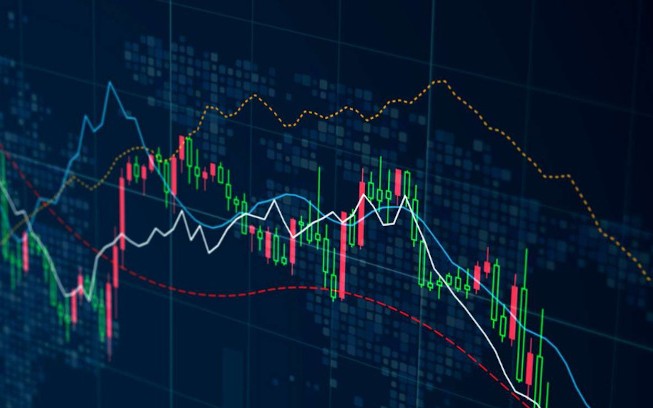
Understanding CFD Forex Trading: A Comprehensive Guide
Trading in the financial market has evolved significantly with the advent of technology and the rise of online trading platforms. One of the most popular methods of trading currencies is through Contracts for Difference (CFDs) in Forex trading. This guide will delve deep into the world of CFD Forex trading, exploring its mechanics, benefits, risks, and strategies. Whether you are a beginner or an experienced trader, understanding these elements is crucial for navigating the forex market successfully. For a reliable trading experience, consider checking out cfd forex trading Trading Broker SA.
What Is CFD Forex Trading?
CFD trading allows investors to speculate on the price movements of currency pairs without actually owning the underlying asset. When trading CFDs, you enter into a contract with a broker to exchange the difference in the value of a currency pair from the time the contract is opened to the time it is closed. If the market moves in your favor, you profit; if it moves against you, you incur a loss. The key advantage of CFD trading is its ability to provide exposure to the forex market with leverage, allowing traders to control larger positions with a smaller amount of capital.
Benefits of CFD Forex Trading
There are several advantages to engaging in CFD Forex trading:
- Leverage: Brokers offer significant leverage, enabling traders to magnify their potential gains. However, it’s important to remember that leverage also amplifies potential losses.
- Access to Various Markets: CFD trading allows access to numerous currency pairs, commodities, indices, and more. This diversification can be useful for mitigating risk.
- Short Selling: Traders can profit from both rising and falling markets without the need for short-selling the underlying assets.
- Hedging Opportunities: CFDs can be used as a hedging mechanism against other investments, providing additional risk management strategies.
- No Expiration Dates: Unlike traditional futures contracts, CFDs do not expire, allowing traders to hold positions for extended periods based on market conditions.
Risks Associated with CFD Forex Trading
Despite the benefits, CFD trading also involves significant risks:

- High Volatility: The forex market is known for its volatility, which can result in substantial losses, especially when using leverage.
- Potential for Margin Calls: If a trader’s account balance falls below the broker’s required margin, they may receive a margin call, necessitating the immediate addition of funds or the closing of positions.
- Limited Regulation: The CFD market is less regulated than traditional financial markets. Traders must choose their brokers wisely and ensure they operate under a legitimate regulatory framework.
- Emotional Trading: The fast-paced nature of CFD trading can induce emotional decision-making, often resulting in rash choices that can lead to losses.
Strategies for Successful CFD Forex Trading
To navigate the complexities of CFD Forex trading successfully, traders must employ effective strategies:
1. Fundamental Analysis
Understanding the economic factors influencing currency movements is crucial. Keep an eye on economic indicators, geopolitical events, and monetary policy changes that can impact the forex market.
2. Technical Analysis
Utilizing charts and technical indicators can help traders identify trends, support and resistance levels, and potential entry/exit points. Popular tools include moving averages, Bollinger Bands, and Relative Strength Index (RSI).
3. Risk Management
Implementing sound risk management techniques is vital. Determine your risk tolerance, set stop-loss and take-profit orders, and avoid risking more than a small percentage of your capital on any single trade.

4. Demo Trading
Before committing real funds, consider using a demo account to practice your strategies and develop your trading skills in a risk-free environment.
5. Stay Informed
Continuous education is key in forex trading. Stay updated on market trends, news, and changes in regulations. Consider joining trading communities, forums, or online courses to enhance your knowledge.
Choosing the Right CFD Forex Broker
Your choice of broker can significantly affect your trading experience. When selecting a CFD Forex broker, consider the following factors:
- Regulation: Ensure the broker is regulated by a recognized authority to protect your funds and provide a safe trading environment.
- Trading Platform: Look for a user-friendly trading platform with advanced tools and features that suit your trading style.
- Costs and Fees: Compare spreads, commissions, and overnight fees to find a broker that offers competitive pricing.
- Customer Support: Reliable customer service is essential, especially for new traders who may need assistance.
Conclusion
CFD Forex trading presents both opportunities and challenges for traders. By understanding how it works, recognizing the associated risks, employing effective strategies, and choosing the right broker, you can navigate the forex market more effectively. Remember that while the potential for profit is high, so too are the risks involved. Continuous education and disciplined trading are essential for long-term success in any trading endeavor, especially in the volatile realm of CFD Forex trading.
